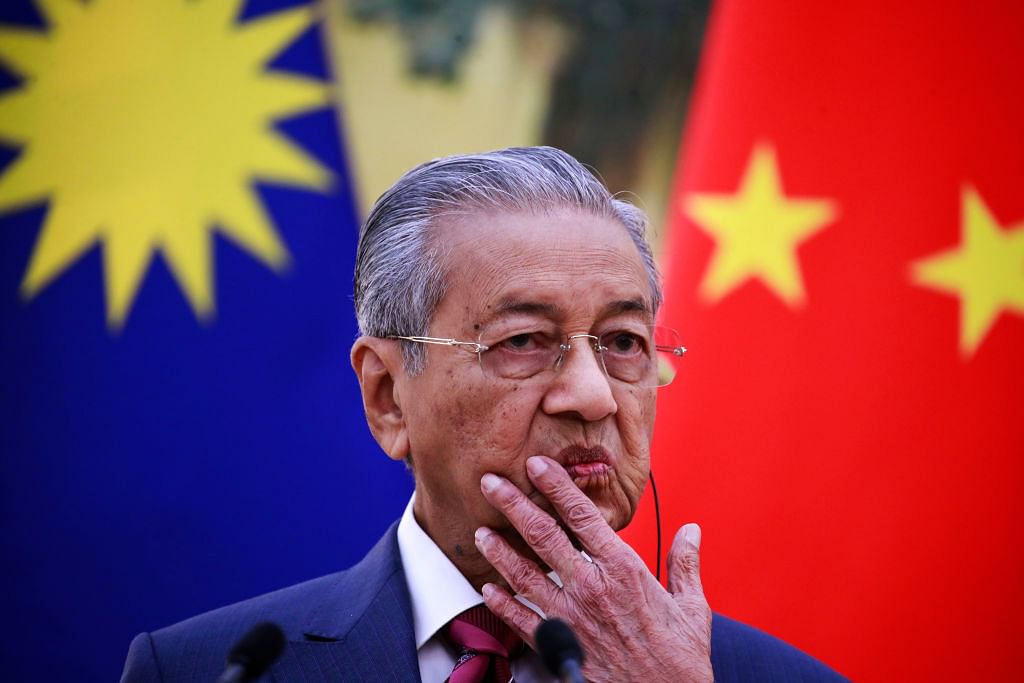Saudi Arabia and Pakistan can never afford to be at odds with each other. This is the balance-sheet of their geo-economics and fraternity. Irrespective of the fact that they differ on numerous policy wavelengths in the regional and international context, what glues them is an ‘undeclared and less-said’ strategic understanding of indispensability.
Likewise, it is a telling tale of historical ties pinned in religion and culture between a nuclear power and a hefty rich benevolent kingdom. One has military muscles and security umbrella to offer and the other in reciprocation signs off staggering cheques and doles out oil deals, apart from absorbing a two-million plus workforce from Pakistan in its evolving fabric.
Thus for more than seven decades, Pakistan has looked up to Saudi Arabia as its patron and well-wisher, come what may. In lieu, Islamabad was at the beck-and-call of Riyadh whenever the Kingdom felt it was in need of a trusted friend.
Then what went wrong suddenly quite recently? The bitterness that was felt in their ties was owing to media goofs or diplomatic misadventures? It’s high time to dwell in it, and figure out how such a congenial relationship could turn sour in a fraction of a moment, and why? Though we are unmindful in learning from our errors and misnomers, let us try to sort out this riddle in the light of recorded history!
Prime Minister Imran Khan, too, like all of his predecessors, made it a point to visit Saudi Arabia after assuming his office and was greeted with open arms. Then as a trajectory of economics, the prime minister found it advisable to seek another soft credit-line from the Kingdom rather than entering into a new sordid deal with the IMF. It is an altogether different story how his economic gurus made him bite the dust with Macbeth in Washington!

Islamabad cherished the much-desired cash tranche $3 billion, as well as a $3.2 billion oil credit facility in late 2018 from Saudi Arabia. It was yet another chapter in generosity from Riyadh. Moreover, conformity of views with the new leadership of Pakistan led to the landmark visit of Crown Prince Mohammad bin Salman to Pakistan in February 2019. The benevolent prince wrapped up deals worth billions of dollars, and that included a deal for a $10 billion oil refinery in Gwadar; and likewise large sums were committed in areas of oil refining, petrochemicals, energy and other sectors. The prince was kind enough to instantly order the release of more than 2,000 Pakistanis from Saudi prisons.
Suddenly, the euphoria went up in thin air. Despite assurances at the highest level, there weren’t any follow up meetings at any level. Lethargy set in, as usual. Pakistani officials hoped the Gwadar facility would be in place in three years, but it is still in limbo!
On the geopolitical front, there came a spanner in the works. Riyadh appeared frustrated with Islamabad. It all started as the leadership of Pakistan, Turkey and Malaysia rubbed shoulders at the UN General Assembly in New York in September 2019. They started thinking loud and wanted their vision for a proactive Muslim world to be transformed into ‘practicability’! They vented out their feelings with a bang. They spoke of a television channel, a forum to debate sectarian faith and an agenda to further a ‘New Order’ for the Islamic states. This in simple words meant challenging the traditional Saudi leadership in the Muslim world. They burnt their fingers!

A number of statements from Kuala Lumpur and Ankara prompted Pakistan to think out of the box. Malaysia’s Mahathir Mohammad just hours before his resignation in late 2019, dubbed India as an “invader in Kashmir.” Likewise, Turkish President Tayyip Erdogan mentioned Kashmir six times during a 25-minute speech to a joint session of the Pakistani parliament in early 2020. Erdogan likened Kashmir to the Turkish struggle for Gallipoli against the British and French in World War I. New Delhi was quick to issue a démarche to the Turkish ambassador within hours of the speech.
Bad blood was ensuing, as Malaysia organized a conference with Kashmir on the agenda. Islamabad was obviously carried away with the initiative by Kuala Lumpur. Moreover, the modus operandi of Turkey and Malaysia was to sideline Saudi Arabia and to seal the fate Iran, Qatar and Indonesia were on board.
But the summit couldn’t materialise as Riyadh pressured Pakistan to withdraw, which it did. It was an embarrassment of sorts. Though a lot of explanations and plain-talking was done at all levels in Islamabad, the damage had been done.
The Saudis had made up their mind. For the first time in our bilateral ties, Riyadh was not only angry but repulsive to the core while dealing with Pakistan. It reportedly asked Pakistan to return back the credit-line of $3billion. Islamabad found itself dumbstruck and floored.
Here is the homework for the government of Prime Minister Imran Khan to deeply introspect as to who were his advisers, and who told what and what was the rationale behind the story that was sold to distance from Saudi Arabia and the United Arab Emirates?
Pakistan was lucky enough to have a parallel format of dialogue with the Saudis in the form of military leadership interacting with their counterparts. This saved the day for Islamabad in terms of avoiding a formal rupture between the two countries.
It is no secret that as the Cabinet and the Foreign Office faltered in assessing geopolitics and were apparently carried away by Turkey and Malaysia. The military establishment came in as a savior. The Pakistan military has a profound agenda of interaction with Saudi Arabia; and it worked at the right moment. The areas of interest include: regional security including the Afghan peace process, bilateral defense, collaboration for regional peace and connectivity.
Chief of Army Staff General Qamar Javed Bajwa, in one of his solo fence-mending visit to Saudia made it categorically clear that “Pakistan is resolute in its commitment to safeguard the sovereignty and territorial integrity of the Kingdom against any aggression.” It worked.
For reasons best known to the ruling clique, the reaction shown to Riyadh was ‘unwise,’ to say the least. Pundits of doom advised the government to pay back the soft loan acquired from the Saudis, and the yellow journalism media portrayed it as a national victory in seven decades.
Beijing was tapped for the cash line, and the first two tranches of one billion dollars each were returned. No recourse was adopted to reach out to the Saudis and redress their hard feelings, if any. This cost Pakistan quite dearly.

Saudi Arabia along with the United Arab Emirates decided to retaliate, and they hit below the belt. In a jiff, Saudis shunted out thousands of blue collar workers. UAE too followed suit. It slapped a ban on visas for Pakistanis, and aborted new employment opportunities. Both these Gulf States are home to more than 3.5 million Pakistani expatriates, and the prime source of remittances to a foreign exchange-starved country. Expatriates were in a nightmare of an unending cold night.
Then on it was a story of omissions and submissions behind the curtain. Turkish epic ‘Ertugral’ was relayed on national television, and the hunch was to draw lessons on a renaissance from Turk history against the Arabs! The Saudis were irked.
That was not an end in itself. A couple of more blows were yet to come. Pakistan, assuming that it is safe and sound on the wings of Ankara, publicly asked Riyadh to support it over human rights violations by India in Occupied Kashmir. Foreign Minister Shah Mahmood Qureshi demanded that the Saudi-based Organization of Islamic Cooperation call for a ministerial meeting on Kashmir, suggesting that otherwise Pakistan would hold its own meeting. It was an unadvised blunder. Men at the helm of affairs didn’t read their lips. The narrative proved to be suicidal. The Saudis decided to call it a day with Pakistan.
Prime Minister Imran Khan, however, kept his cool and tried to play down the differences: “The rumours that our relations with Saudi Arabia have soured are totally false,” he once quipped with the media.
In a master Googly, the prime minister a world-class bowler swings the ball by pronouncing that “he was pressured by two Arab nations to normalise relations with Israel.” He didn’t name any one. The nation linked the dots, and conspiracy theories were all abound.
The Saudis and Emiratis resorted to a couple of balancing acts and inched more towards India. The visit by Indian chief-of-staff to Saudi Arabia; Abu Dhabi’s “understanding” of Indian stance on Kashmir; announcements to include lessons of Mahabharata in the Saudi syllabus and kick-starting the construction of Middle East’s largest temple in the UAE were clear optics, as far as flexing of muscles are concerned.
The Pakistani media reacted in jingoism. It eulogized attempts to “stand up” to Saudis and Emiratis, and sounded bizarre in a script that was feverish and uncalled for. It linked Saudi anger to denial of committing Pakistani armed forces in its war on Yemen, and so forth. Pundits in prophecy advised the Pakistani Establishment to go the “Chinese way”, in order to get rid of “Arab crutches.”

James M. Dorsey, an award-winning journalist and a research fellow in Singapore aptly describes such a situation by saying, “I don’t think the Saudis can really afford to make a choice between India and Pakistan, while the Pakistanis wouldn’t want to be dependent on China either.” That summed up intellect. But there were not many listeners.
It is a foregone conclusion of realpolitik that Riyadh needs Islamabad due to its proximity to Afghanistan and Iran. While Pakistan is home to world’s largest Shia minority, and a powder keg of at least a dozen Sunni orientations of Islamic faith; Saudis depend largely on Pakistan to keep them in tab. Islamabad is well-versed in playing Sherlock Holmes, though.
There is no harm if Pakistan realigns its priorities with Turkey, Malaysia or any other country. This is an era of alliances and geo-economic concentration. There is a lot that Pakistan can learn and interact with these emerging economic powers in terms of industrial collaboration, investment and furthering exports and manpower. But that should not come at the expense of jeopardizing ties with our trusted allies and friends. Moreover, it is high time Pakistan should start looking inward to rebuild and stabilize its credentials. The premise of playing to the gallery and galvanizing core groups for vested orientations hasn’t been delivered.
It is a good omen nonetheless that better sense has prevailed in Pakistan’s relationship with the Saudis and the Emiratis. Saudi Crown Prince Mohammad bin Salman and Sheikh Mohammed bin Zayed Al-Nahyan, the Crown Prince of Abu Dhabi and Deputy Supreme Commander of the UAE Armed Forces, luckily opted for a personal diplomacy in embracing Imran Khan, who is regarded as a sincere leader in quest of building his nation. The chemistry worked. Pakistan’s military leadership too walked the extra few miles in mending the fences, and exhibited its invincibility in the Arab world.
The ‘new understanding’ to move on by burying the hatch is indispensable. The respective leadership should ensure that there aren’t any somersaults. Riyadh-Abu Dhabi and Islamabad, indeed, form a synopsis of peace and development in the region. They have much to cherish than to shun. Time to ensure there isn’t any new misadventure.






Great content! Keep up the good work!